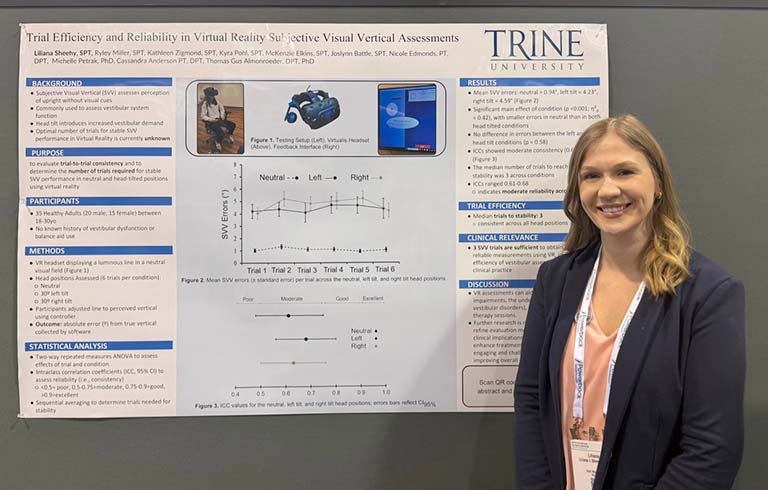By Earl D. Brooks II, Ph.D.
Our nation was innovative from its founding, the concept of “government of the people,
by the people, for the people” a revolution in a largely colonial world.
Innovation drives this nation. Individuals like Thomas Edison, George Washington Carver,
Henry Ford, Orville and Wilbur Wright and Steve Jobs have designed and implemented
innovations that have helped propel the United States as global economic and technology
leaders.
Even here at Trine University, we are deeply committed to supporting innovation. Our
Allen School of Engineering and Computing and Trine Innovation 1 exist to connect
innovators with university resources, and the new expansion of the Steel Dynamics,
Inc. Center for Engineering and Computing will provide students the opportunity to
work more extensively with cutting-edge technologies such as augmented and virtual
reality. We hope to help the next Carver, Ford or Jobs — whether that person is a
Trine student or university business partner — bring products and solutions to market
that will positively impact our region, nation and world.
Despite efforts at Universities nationwide like Trine Innovation 1, the United States
faces unprecedented challenges to remain a leader in innovation.
Other countries, recognizing the economic and strategic advantages that America has
enjoyed for many years, have committed massive amounts of resources and talent to
develop, produce and distribute their own technological innovations. While any advancement
can make life better for people around the world, the possibility of other nations
who may not share our ideals assuming leadership in critical areas of technology has
profound implications for our national and economic security.
The prospect of the United States losing its leadership in innovation is why legislation
such as the Innovation and Competition Act of 2021, formerly known as the Endless
Frontier Act, originally drafted and sponsored by Indiana Sen. Todd Young, is vitally
important to our nation’s future.
Recently passing the U.S. Senate with bipartisan support, this legislation would provide
substantial funding and a structure for the National Science Foundation to support
critical areas of innovation. This legislation would reorganize the National Science
Foundation (NSF) with a new branch focusing on technological innovation in key areas
including artificial intelligence, quantum computing, cybersecurity and others.
The legislation would task NSF to create innovation centers nationwide, ensuring that
key technology developments and their economic benefits are shared throughout the
country and not consolidated in coastal regions. Ultimately this legislation, once
enacted, would support efforts like Trine’s Innovation 1 and the Allen School of Engineering
and Computing by encouraging universities to assist with developing new ideas and
eventually marketable products. It also would fund new avenues to assist students
financially as they develop the skills to drive the technologies and workforce of
tomorrow.
Beyond funding and structure, the Innovation and Competition Act of 2021 sends a message
to our nation, allies and global competitors that we are willing to invest in our
country’s future, in order to maintain and expand our leadership in technology and
new ideas.
I strongly support Senator Young’s efforts on this critical legislation. The United
States cannot rest on its laurels in the race to lead the world in innovation; we
must continue to support efforts that help America stay ahead of the pack. The Innovation
and Competition Act of 2021 is one such effort, and our leaders must see that this
vital legislation is swiftly enacted into law.
Last Updated: 07/16/2021


